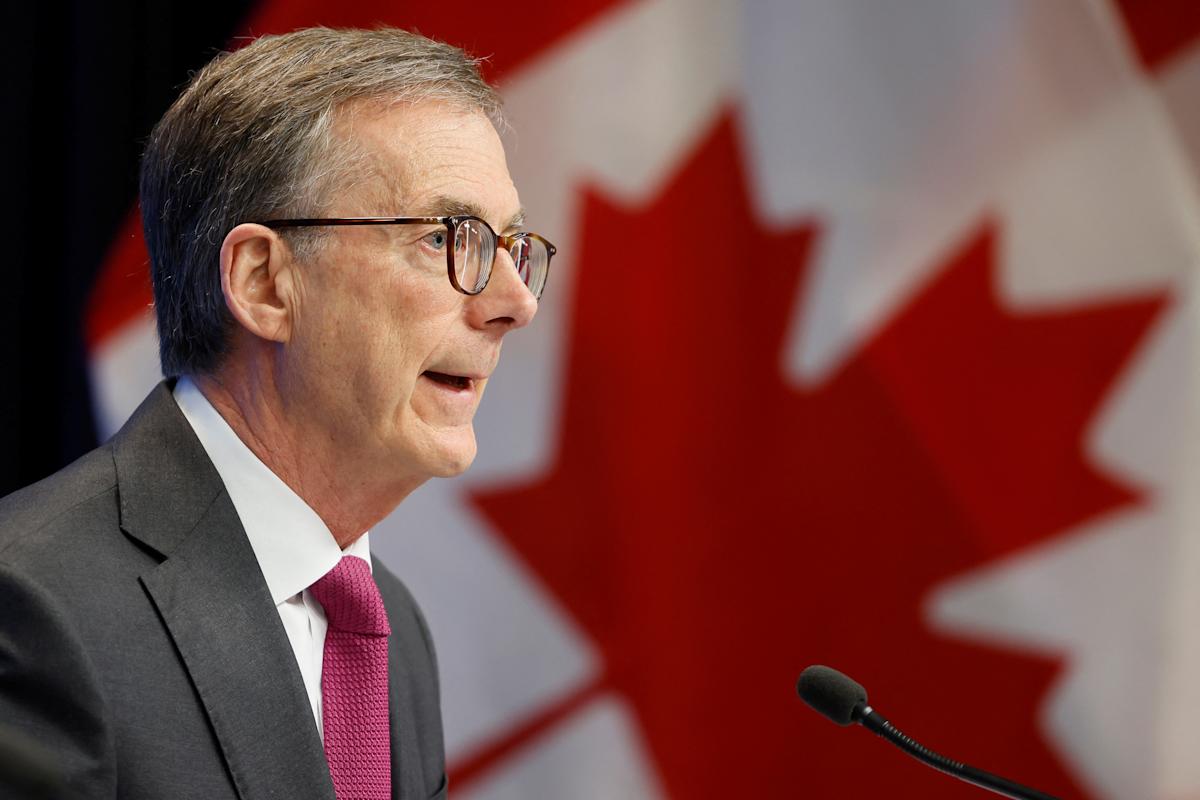CIBC economist Benjamin Tal says the Bank of Canada’s overnight rate “is very close to neutral already,” meaning any further rate relief will be modest. (REUTERS/Blair Gable) · REUTERS / Reuters
Variable mortgage rates in Canada could drop below fixed rates if the Bank of Canada (BoC) cuts its overnight rate as expected on Wednesday — but scars from past rate swings and wider economic anxieties may keep the housing market muted even if borrowing costs fall further, experts say.
CIBC economist Benjamin Tal told Yahoo Finance Canada that key economic indicators for employment, inflation and housing give the BoC “the green light” to cut on Wednesday, “not only in September but also I think after.” But he notes the policy rate “is very close to neutral already,” meaning that any rate relief will be modest. Markets have largely priced in two cuts, says Ron Butler, a broker at Butler Mortgage —though Tal and others caution that the August inflation report, due Tuesday, could carry considerable weight in shaping the BoC’s call.
An interest rate cut typically flows through to variable mortgage rates and could push some variable rates below those offered for fixed mortgages. Lenders have already been offering steeper discounts on variable mortgages, says Butler, cutting below prime “as deep as we’ve seen in a couple of years.”
But the appeal of variable rates has faded since the pandemic era, when borrowers endured rate swings that pushed payments sharply higher in a short span. “We used to have a situation in which, when interest rates were going down, 75 per cent of people would go to variable,” said Tal. “I don’t think that will be the case anymore — that number will be much lower now.”
Butler puts it more bluntly: “The heyday of variable may have passed.”
Fixed rates have already fallen significantly from last year’s highs, offering some relief — but not enough to reignite demand. Butler says he has recently seen three-year insured fixed terms as low as 3.69 per cent, down from the mid-5s in mid-2024. “From 5.69 per cent down to four per cent on fixed rates, you’d think the real estate market would have substantially improved. The answer is: Not really,” he said. Despite better borrowing conditions, sales volumes have barely budged and most homes in the GTA are still selling under asking.
Tal warns that further declines are unlikely. U.S. deficits, sticky inflation, and Ottawa’s own likely heavy borrowing are all pushing up long-term yields. As he puts it in a follow-up: “Any change in the five-year rate will be too small to change the narrative.”
Tal argues that the market’s deeper challenge isn’t cost but psychology. “I don’t think the main issue in the housing market at this point is interest rates,” he said. “I think it’s confidence more than anything else.” The hesitation in the market has multiple sources. Don Kottick, president of Re/Max Canada, says tariff uncertainty early this year pushed many buyers and sellers into “a wait-and-see kind of attitude” that, like the tariff unknowns, still lingers. And Butler notes a dramatic change in who’s even in the market. “There’s nobody buying to rent a property or flip a property… all that stuff that was in excess in 2021, that’s absent, that’s gone,” he said.
Story Continues
You cannot solve something that has taken 20, 30 years to build up in five minutes.CIBC economist Benjamin Tal on the affordability crisis
For those who are active, the balance of power has shifted. Kottick says the “gap between buyers and sellers has narrowed” and that people listing today know “they have to price to the market.” Those unwilling to meet buyers where they are often don’t list at all.
Renewals are another pressure point. While economists have moved on from forecasts of systemic shock, some households still face steep hikes. Tal says increased payments for some homeowners won’t be enough to alter the Bank’s course. Butler says clients who locked in around 1.7 per cent in 2020 and 2021 are now renewing closer to four per cent, pushing payments up 20 to 25 per cent. Some see jumps of 50 per cent, though others with shorter terms are renewing into lower costs. The refrain he hears most often is “We can manage, but it hurts.” And, he adds: “We already saw the worst-case scenario tested when variable rates surged from 1.45 per cent to over six per cent… the whole world didn’t come to an end.”
Even if the BoC cuts this week, affordability challenges will persist. “You cannot solve something that has taken 20, 30 years to build up in five minutes,” Tal said. Kottick echoes the point, arguing that only new supply can meaningfully address the imbalance between demand and inventory.
John MacFarlane is a senior reporter at Yahoo Finance Canada. Follow him on X @jmacf.
Download the Yahoo Finance app, available for Apple and Android.

